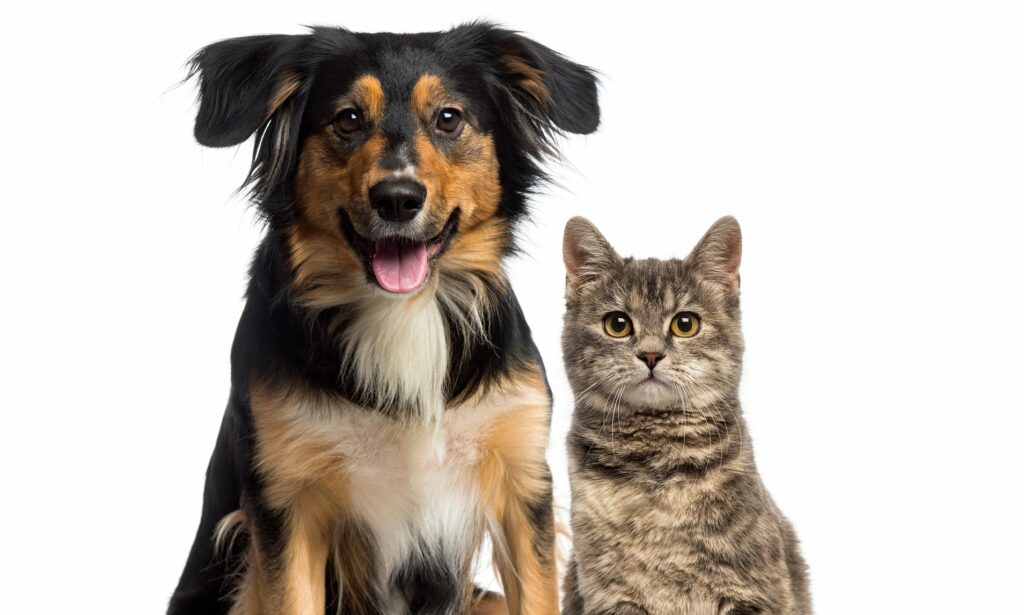Introduction
CBD (cannabidiol) has gained popularity as a potential natural remedy for various health conditions in both humans and animals. Pet owners are increasingly turning to CBD to potentially alleviate symptoms and promote well-being in their furry companions. While CBD for dogs and CBD for cats share some similarities, there are important differences to consider. In this comprehensive guide, we will explore the use of CBD for dogs and cats, discussing their unique physiology, potential benefits, dosage considerations, and safety precautions.
Physiology and Differences between Dogs and Cats
- Highlighting the physiological differences between dogs and cats, including metabolism, digestive system, and endocannabinoid system.
- Discussing the variations in cannabinoid receptors and their distribution in dogs and cats.
Potential Benefits of CBD for Dogs
- Exploring the potential benefits of CBD for dogs, such as pain management, anxiety reduction, and seizure control.
- Providing scientific evidence and studies supporting the use of CBD for specific conditions in dogs.
- Discussing anecdotal evidence and testimonials from dog owners who have experienced positive results with CBD.
Potential Benefits of CBD for Cats
- Examining the potential benefits of CBD for cats, including pain relief, anxiety reduction, and improved appetite.
- Citing scientific research and studies that support the use of CBD for specific conditions in cats.
- Sharing real-life stories and testimonials from cat owners who have witnessed positive effects of CBD on their feline companions.
Dosage Considerations for Dogs and Cats
- Discussing the importance of proper dosage and the need for individualized dosing based on factors such as weight, condition, and product potency.
- Providing general dosage guidelines for dogs and cats, while emphasizing the importance of consulting with a veterinarian for personalized recommendations.
- Highlighting the potential risks of incorrect dosing and the importance of starting with low doses and gradually increasing if necessary.
Safety Precautions and Potential Side Effects
- Addressing safety concerns related to CBD use in dogs and cats, including potential drug interactions and the importance of sourcing high-quality CBD products.
- Discussing the potential side effects of CBD, such as drowsiness, gastrointestinal disturbances, and changes in appetite.
- Providing tips for selecting reputable CBD products and ensuring they are free from harmful contaminants.
Administration Methods and Product Selection
- Detailing different administration methods for CBD, such as oils, tinctures, treats, and topicals.
- Discussing the pros and cons of each method and considerations for selecting the most suitable product for dogs and cats.
- Highlighting the importance of choosing CBD products specifically formulated for pets and avoiding those with additives or toxic substances.
Legal Considerations and Regulations
- Exploring the legal status of CBD for pets and the variations in regulations across different countries and regions.
- Advising pet owners to be aware of local laws and to consult with a veterinarian who is knowledgeable about CBD use in animals.
Conclusion
CBD has the potential to provide relief and support the well-being of both dogs and cats. While they share some similarities in terms of potential benefits, it is essential to consider the physiological differences between dogs and cats when administering CBD. Pet owners should consult with a veterinarian before introducing CBD to their pets, ensuring proper dosing, product selection, and monitoring for any potential side effects. By taking these precautions and using CBD responsibly, pet owners can potentially harness the benefits of CBD to improve the quality of life for their beloved dogs and cats.
Case Studies and Testimonials
- Presenting case studies and testimonials from pet owners who have used CBD for their dogs and cats.
- Sharing specific stories of how CBD has helped improve the quality of life for pets suffering from various conditions, such as arthritis, separation anxiety, or cancer-related symptoms.
- Including before-and-after experiences to demonstrate the potential efficacy of CBD in improving the well-being of pets.
Potential Interactions with Medications and Precautions
- Discussing potential interactions between CBD and commonly prescribed medications for dogs and cats.
- Advising pet owners to consult with their veterinarian before using CBD alongside other medications to avoid any adverse effects or reduced efficacy.
- Highlighting the importance of transparency with veterinarians about CBD use to ensure comprehensive care for pets.
Research Gaps and Future Considerations
- Addressing the current limitations in scientific research on CBD for dogs and cats.
- Identifying areas where more studies are needed to establish the safety and efficacy of CBD in different veterinary applications.
- Discussing the potential for future advancements in CBD research and its impact on veterinary medicine.
Conclusion
CBD holds promise as a natural remedy for promoting the well-being of both dogs and cats. While there are similarities in potential benefits and considerations between CBD for dogs and cats, it is crucial to acknowledge their unique physiology and individual needs. Pet owners should consult with a veterinarian experienced in CBD use to ensure safe and effective administration, proper dosing, and the selection of high-quality CBD products. By combining the potential benefits of CBD with personalized care, pet owners can explore CBD as a complementary option to support their furry companions’ overall health and quality of life.

